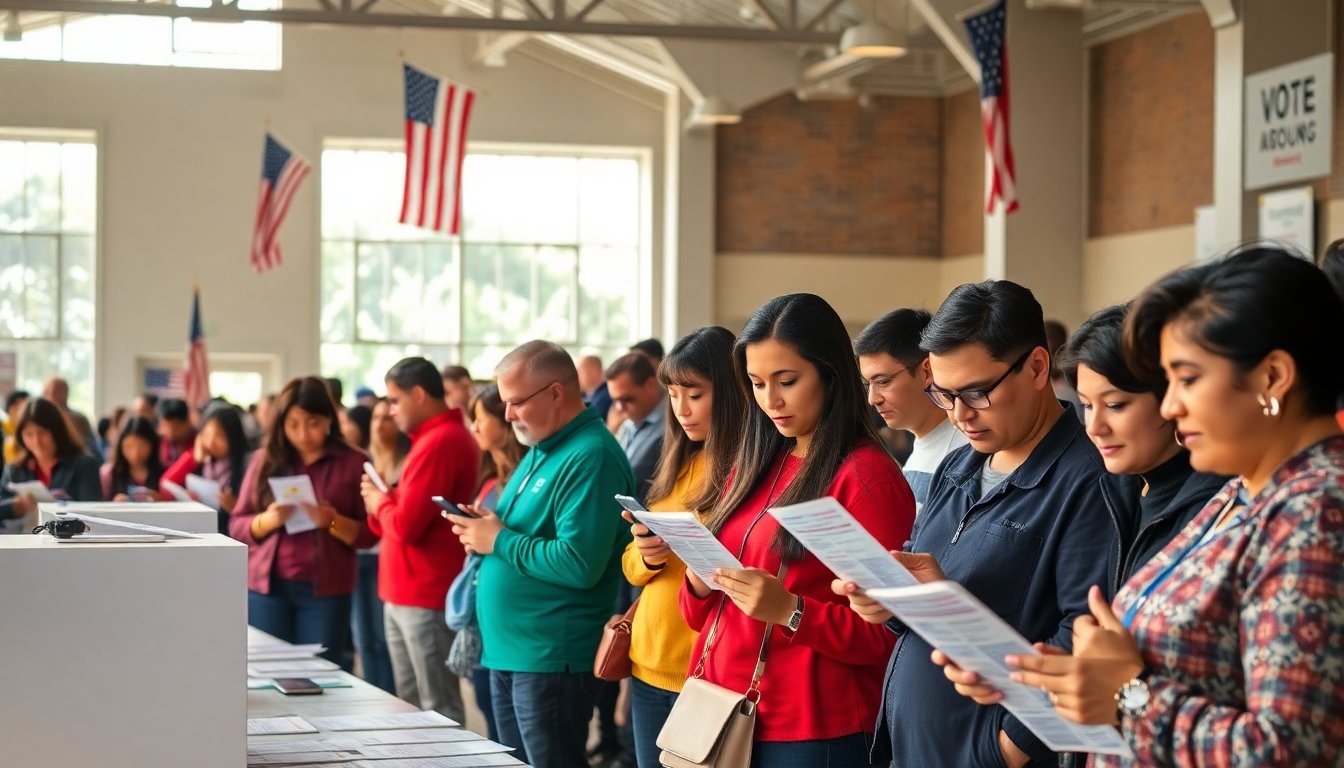Table of Contents
The political landscape in the United States is continually evolving, with a notable shift among Hispanic voters. As the governor’s race in New Jersey approaches, it offers an opportunity to analyze changes in this demographic’s voting patterns, particularly in light of President Trump’s influence during the election. This article examines the implications of these shifts and their potential impact on future elections.
Shifting allegiances: The impact of Trump’s presidency
During the election, President Trump made significant inroads into traditionally Democratic strongholds, particularly in areas with large Hispanic populations. Townships in New Jersey, predominantly Hispanic, notably leaned in his favor, suggesting a potential realignment of voter loyalty. This shift raises critical questions about the factors driving these changes and their implications for the future.
Understanding the motivations behind the shift
Several factors may explain why a portion of the Hispanic electorate supported Trump. Issues such as the economy, immigration policies, and community safety resonate deeply with voters. For many, Trump’s hardline stance on immigration appeared protective rather than punitive, influencing their decision-making. Additionally, economic concerns, especially following the pandemic, have prompted voters to prioritize stability and job creation over party affiliation.
Current political climate in New Jersey
As New Jersey prepares for the off-year gubernatorial election, responses from Hispanic voters will be closely scrutinized. The results may either reinforce Trump’s gains or indicate a retreat to Democratic support. Recent polling data suggests that while some Hispanic voters remain aligned with the Democratic Party, others are increasingly disillusioned with its policies, particularly regarding immigration reform and economic opportunities.
Implications for future elections
The outcome of the New Jersey governor’s race could serve as a barometer for future elections, both in the state and nationally. If the trend of increased support for Republican candidates among Hispanic voters continues, it may signal a fundamental shift in the political landscape. Political parties will need to reassess their strategies and outreach efforts to engage this vital demographic.
The role of community engagement and outreach
Successful candidates are likely to prioritize robust community engagement initiatives. By addressing the specific needs and concerns of Hispanic voters, candidates can foster a sense of inclusion and representation. This approach requires genuine dialogue and an understanding of the cultural nuances that influence voting behavior.
As the election unfolds, it is essential to analyze how candidates engage with Hispanic communities and whether these interactions translate into votes. The New Jersey race is not solely about the candidates; it is about the messages they convey to voters and how they connect with them.
Pivotal moment for Hispanic voters
The upcoming gubernatorial election in New Jersey holds significant implications for the future of Hispanic voters in the state and beyond. As these communities navigate their political identities, the results may highlight a critical moment in American politics. Observers will be keen to determine whether the gains made by Trump during the election were a fleeting trend or the start of a lasting change in Hispanic voter allegiance.


